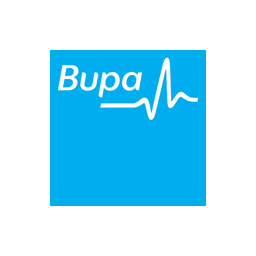Cholesterol is a naturally produced substance that’s essential to maintaining our everyday health. However, too much cholesterol in the blood can pose a risk to health and, thanks to today’s fat-rich foods and sedentary lifestyles, over half of UK adults have higher than recommended levels. The good news is that for most people, simple changes to daily diet, exercise and smoking habits can lower their cholesterol count and cut the risk of developing heart disease in later life. Here are some useful facts to help you take control of your body’s cholesterol and stay healthy:
Cholesterol: what is it?
Cholesterol is a fatty substance, or lipid, and an important structural component of all animal cells. Like other animals, we humans manufacture our own. The body of a typical 68kg person contains around 35g of cholesterol and produces about 1g every day, mostly in the liver. We also ingest extra cholesterol by eating meat and dairy products. Cholesterol helps our bodies stay healthy in three ways:
- Builds and maintains cell membranes
- Produces vital hormones (including sex hormones)
- Makes bile in the liver
Good and bad cholesterol
We’ve all heard of the good and the bad, but why is some cholesterol helpful and some harmful? The answer lies in how cholesterol is transported around your body. When cholesterol travels in the bloodstream, it combines with proteins to form two different types of lipoprotein: high-density lipoprotein (HDL) and low-density lipoprotein (LDL). HDL is known as ‘good cholesterol’ because it carries excess cholesterol away from body cells and towards your liver where it’s broken down and eventually excreted. LDL, on the other hand, is labelled ‘bad cholesterol’ because as well as supplying body cells with their much-needed cholesterol, it also deposits any unused cholesterol onto artery walls, which leads to an increased risk of developing heart disease and strokes.
Watch your triglycerides
Cholesterol isn’t the only lipid that can be harmful to health. High levels of fatty substances called triglycerides can also cause hardening of artery walls and increase your risk of heart disease. Any extra calories you consume that aren’t used right away to fuel physical activity are stored in the form of triglycerides. When you body needs extra energy, it releases triglycerides into the bloodstream to power your tissues. So, like cholesterol, triglycerides perform an essential role, but excessive levels pose a risk to your health. That’s why all cholesterol tests also measure levels of triglycerides in your blood. Lower your triglyceride count by losing weight, exercising more, limiting alcohol consumption and following a balanced diet low in refined sugar and saturated fats.
Get the right balance
Keeping a close eye on your cholesterol levels can help you to stay happy and healthy. Having too much cholesterol, excess triglycerides or a relatively high proportion of ‘bad’ LDL versus ‘good’ HDL in your blood can have a negative impact on your health. As high cholesterol doesn’t usually present any tell-tale symptoms, it’s best to have your levels checked, especially if you’ve experienced unusual cholesterol counts in the past, or you have a family history of raised cholesterol. Consult your GP for more information or to arrange a blood test.
Understanding the risks
Too much cholesterol can result in a condition known as atherosclerosis, where fatty deposits or plaques accumulate on the inner surfaces of arteries. Left untreated, these plaques sometimes grow and harden over time, causing the blood vessels to narrow and the flow of blood to be constricted or even completely blocked. This may slow or stop the supply of oxygen-rich blood, damage vital organs and even result in heart attacks or strokes. Atherosclerosis is difficult to diagnose in its early stages as it’s largely symptom-free, but most people can prevent it through healthy diet, exercise and weight control.
Testing for peace of mind
Cholesterol tests are routine procedures available at your local GP surgery or health centre. A sample of your blood is taken, sent to a lab for analysis and the results returned to your doctor for interpretation. The test measures the total amount of cholesterol in your blood as well as specific counts for HDL (good cholesterol), LDL (bad cholesterol) and triglycerides. High levels of LDL and triglycerides, or low readings of HDL, indicate an unhealthy imbalance and an increased risk of cardiovascular disease. If levels are elevated, your doctor will recommend remedial lifestyle changes or medication, based on the following factors:
- Your age, sex and family medical history
- Your body mass index (BMI), which measures weight in proportion to your height
- Your state of health (ie if you have a condition such as high blood pressure or diabetes)
How high is high?
We hear a lot about high cholesterol, but what levels are considered to be too high? According to the UK government, the total blood cholesterol level of a healthy adult should be below 5 mmol/L. However, three out of five adults in the UK have levels of 5 mmol/L or above, and the average cholesterol count is about 5.7 mmol/L. Your doctor will advise whether or not your levels are excessive, and if you need to take action by making lifestyle changes or undergoing treatment.
Keep your cholesterol low
You can take active steps to lower your cholesterol and increase the ratio of ‘good’ HDL to ‘bad’ LDL:
- Eat less saturated fat. Avoid meat pies, sausages, fatty meats, butter, hard cheeses, cream, pastries, cakes, biscuits and anything containing coconut or palm oil.
- Eat more unsaturated fats. Foods like oily fish, avocados, nuts, seeds and sunflower, rapeseed, olive and vegetable oils actually boost your HDL.
- Exercise more. Regular physical activity lowers LDL and keeps your heart and circulatory system in good shape.
- Stop smoking. Cigarettes contain a chemical that stops HDL from functioning properly, so the less you smoke, the better your HDL works.
- Lose weight. Obesity increases the likelihood of you developing high levels of LDL and low levels of HDL.
- Drink sensibly. Consuming large quantities of alcohol often leads to raised cholesterol.
Most people can control their cholesterol using these simple lifestyle changes. For others, doctors may prescribe statins, medicines that help to reduce the amount of LDL in the blood.
September 20, 2018








